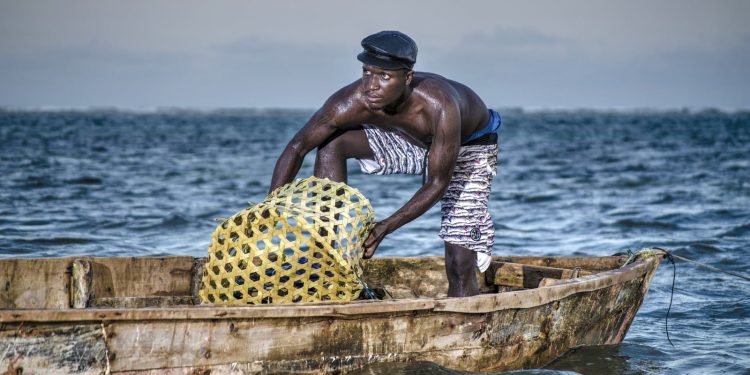In the coastal communities of Cameroon precisely in Douala and Edea, artisanal fishermen are suffering the full force of unfair competition from foreign industrial vessels operating in the Gulf of Guinea.
These ‘Distant Water Fishing Vessels’ (DWFVs) are often singled out for their intensive practice of IUU fishing, which is responsible for the over-exploitation of marine resources. According to data from the Environmental Justice Foundation (EJF), about 40% of the fish caught in the Gulf of Guinea is caught illegally, resulting in annual economic losses estimated at more than €1.2 billion for neighbouring countries, including Cameroon.
For local fishermen, the effects are disastrous. ‘Our catches have dropped to half in just two years,’ Michel, a small-scale fisherman in Douala, laments. With depleted stocks, fishing is becoming less profitable, jeopardising the livelihoods of thousands of families who make their living from this activity.
According to a study by the African Marine Mammal Conservation Organization (AMMCO), 80% of coastal communities in the region depend directly or indirectly on fishing for their livelihood.
Apart from depleting fish stocks with consequent reduction in catches, these foreign vessels use intensive techniques that degrade the marine habitat and disrupt the ecosystem. ‘They use large nets and catch tonnes of fish in a single catch, depleting stocks for future generations’, Younoussa Abossouka, EJF’s representative in Cameroon, explains.
The lack of effective regulation and surveillance allows these foreign fleets to continue their activities without much opposition, despite the laws in force.
Initiatives to strengthen surveillance and protect local fishermen
Faced with this situation, efforts are being made to protect local fishermen. The ‘Promoting Transparency, Accountability and Local Capacity to Address the Destabilising Impacts of Distant Water Fishing Vessels’ (DWFV) project, supported by the Center for Maritime Law and Security (CEMLAWS) and the Center for Coastal Management (CCM), aims to strengthen surveillance capacity in the region.
The project, funded by the US State Department, encourages collaboration between local governments, civil society organisations and communities to monitor and report IUU fishing activities.
Through the implementation of surveillance technologies and materials such as satellite tracking and the development of training manuals for enforcement officers, these initiatives aim to strengthen transparency in fisheries governance.
The Cameroon Ministry of Fisheries, in partnership with AMMCO and EJF, has also stepped up its efforts to monitor territorial waters.
These collaborations facilitate the sharing of information paving the way for a faster and more effective action against illegal vessels.
Fanta Mabo
While the content of this article is made possible under the Promoting Transparency, Accountability and Local Capacity to Address the Destabilizing Impacts of Foreign-Owned Distant Water Fishing Vessels (DWFV) in the Gulf of Guinea and the Waters of Mauritania project, the opinions and connotations are entirely that of the Author and do not reflect the position or alignment of the funding agency – U.S. Department of State or the project implementing partners, the Centre for Maritime Law and Security (CEMLAWS) Africa, and the Centre for Coastal Management (CCM) at the University of Cape Coast.








